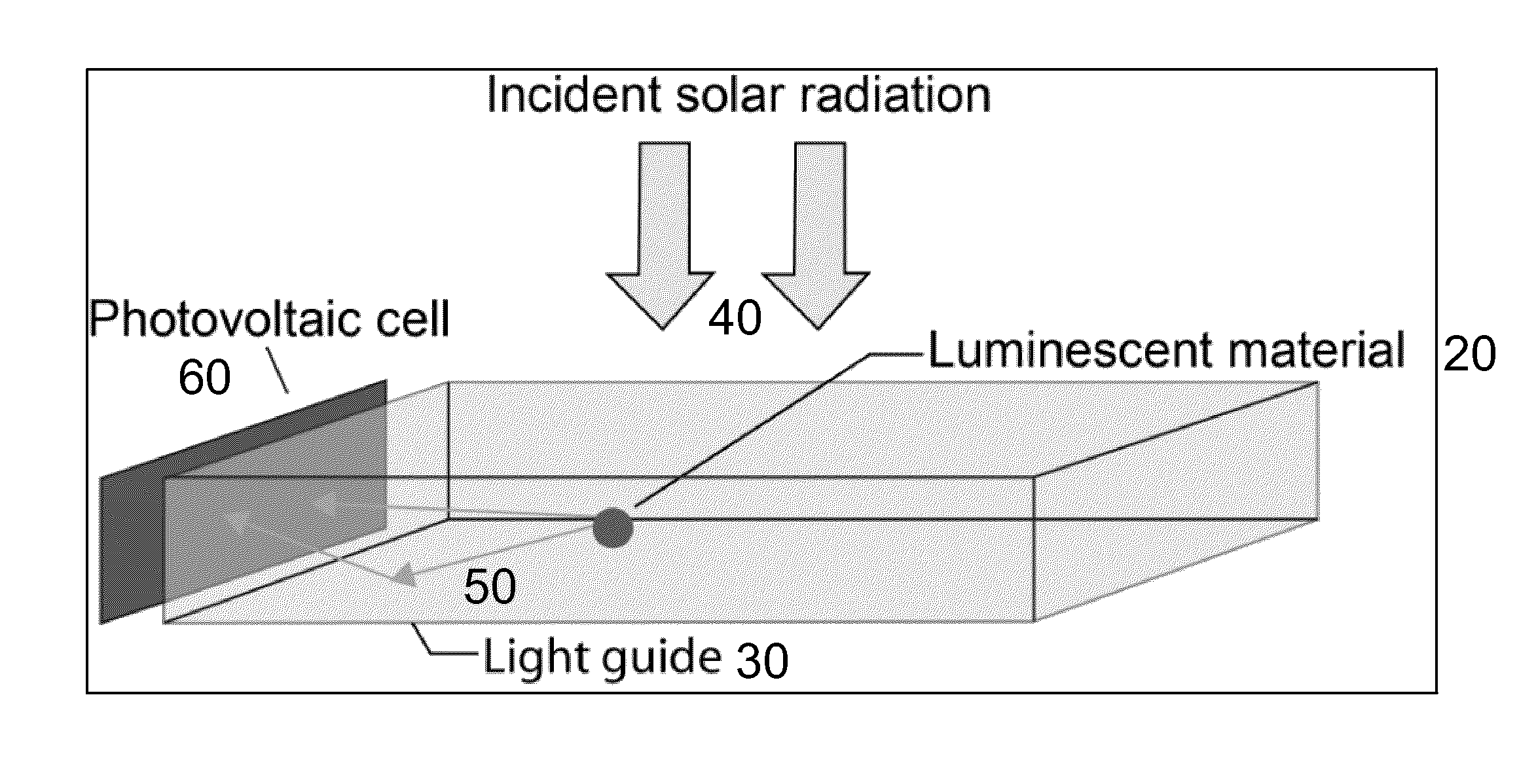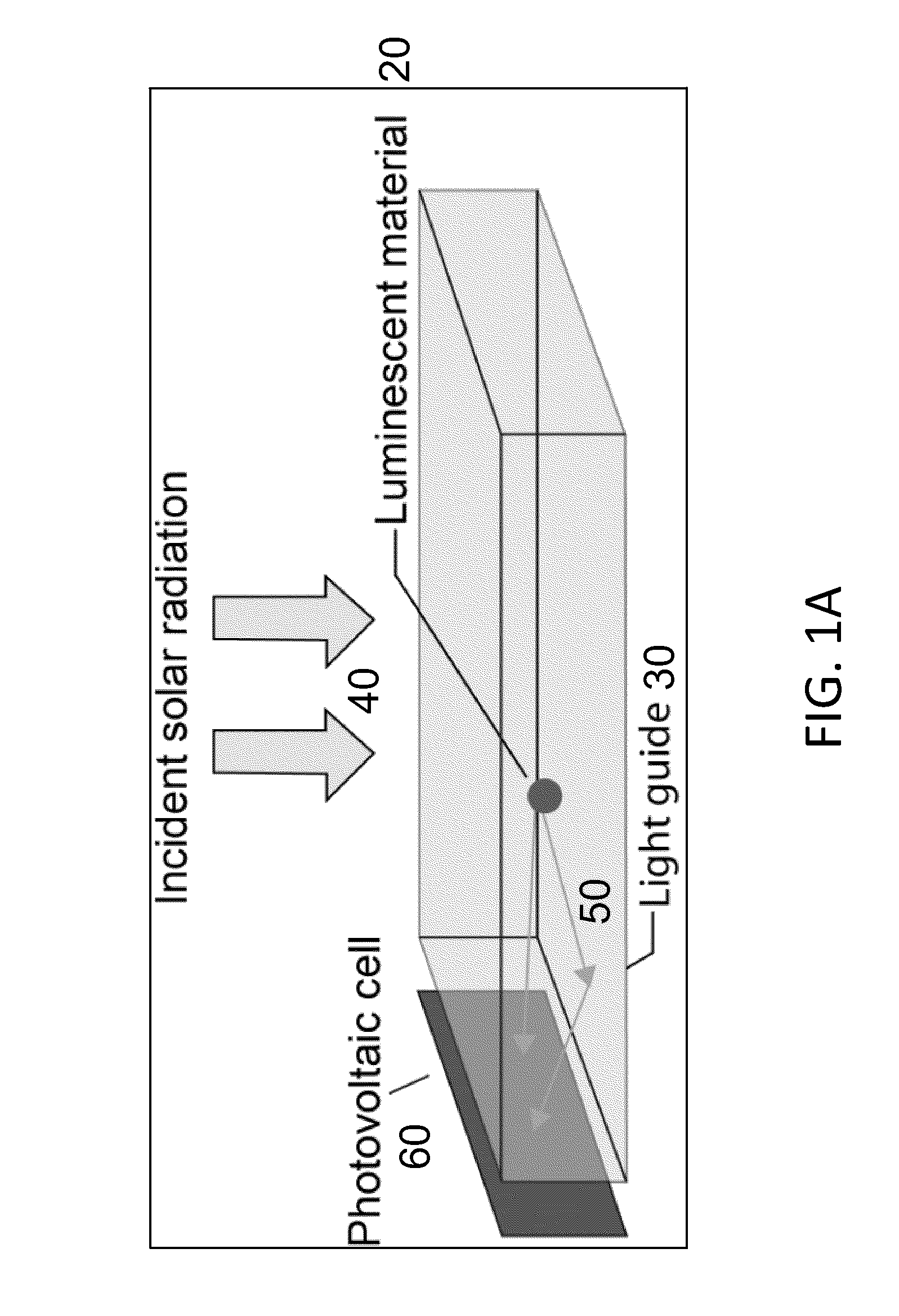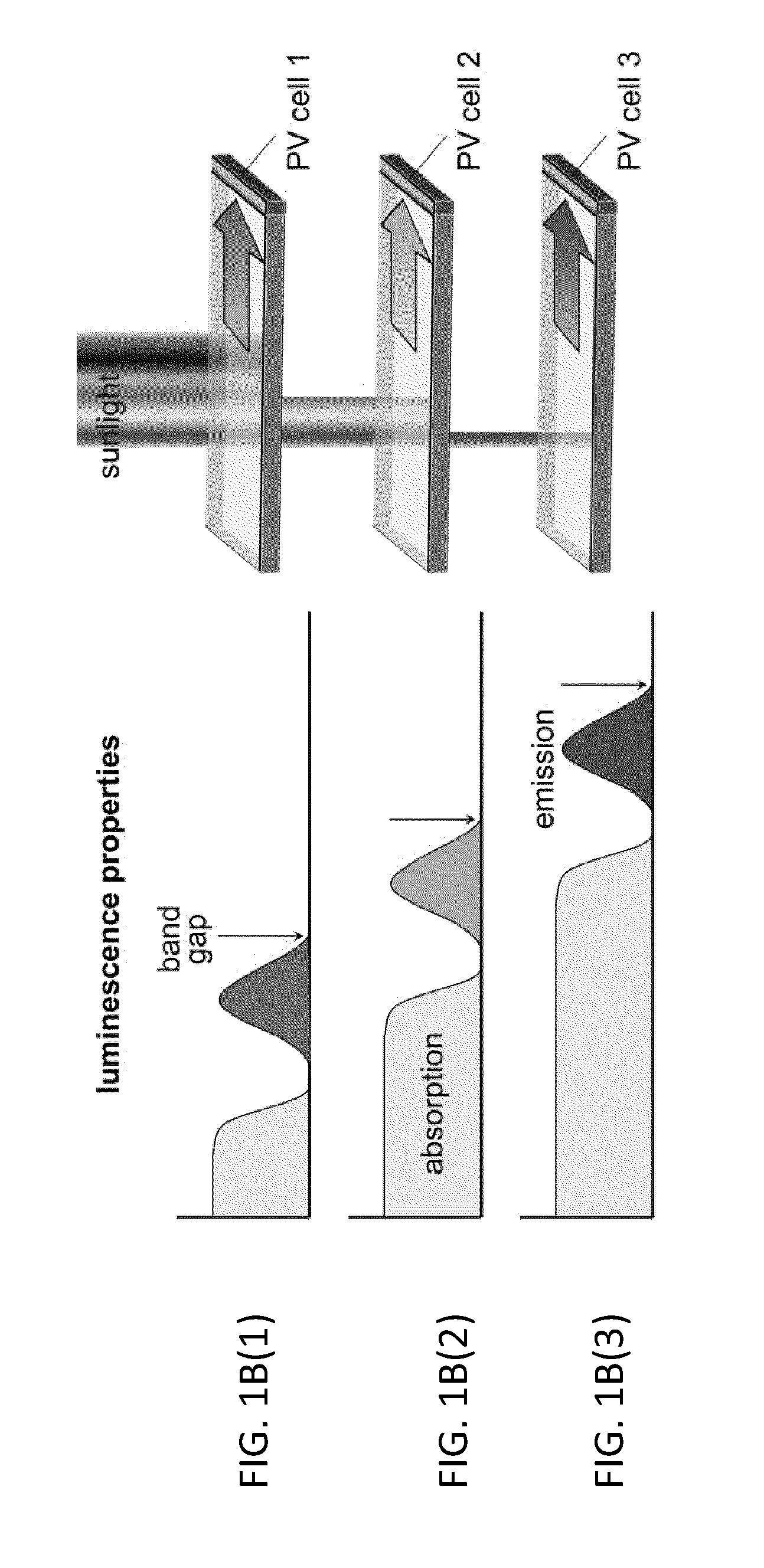Small core/large shell semiconductor nanocrystals for high performance luminescent solar concentrators and wavelength downshifting
a technology of luminescent solar concentrator and nanocrystals, which is applied in the field of small core/large shell geometries of nanocrystals, can solve the problems of reducing the efficiency of the device, limited performance of the lscs incorporating typical semiconductor ncs, etc., and achieves efficient solar energy harvesting, low reabsorption, and limited performance.
- Summary
- Abstract
- Description
- Claims
- Application Information
AI Technical Summary
Benefits of technology
Problems solved by technology
Method used
Image
Examples
example i
A. Starting Chemical Compounds Used
[0053]CdO (Sigma-Aldrich, 99%), n-propylphosphonic acid (PPA, Sigma-Aldrich, 95%), triocytylphosphine oxide (TOPO, Sigma-Aldrich, 99%), octa-decyl-phosphonic acid (ODPA, PCI Synthesis, 97%), triocytylphosphine (Fluka, 90%), selenium (Aldrich, 98%), sulfur (Sigma-Aldrich, 99%), n-propylphosphonic acid (PPA, Aldrich, 95%), dodecanoic acid (Sigma-Aldrich, 99%), and octylamine (Aldrich, 99%) were used for the synthesis of nanoparticles (NPs).
B. Synthesis of CdSe Seeds
[0054]CdSe seeds were synthesized in 50 ml three-neck flask using a Schlenk-line approach. TOPO (3.0 g), ODPA (0.308 g), and CdO (0.060 g) were mixed, heated up to 150° C., and kept under vacuum for 2 h. The reaction solution was then heated up under nitrogen to 300° C. at approximately 7° C. / min. The reaction solution became transparent, indicating the formation of Cd-ODPA complexes. Next, 1.5 g of TOP was rapidly injected into the reaction flask. TOP-Se solution (0.058 g Se+0.360 g TOP) ...
PUM
 Login to View More
Login to View More Abstract
Description
Claims
Application Information
 Login to View More
Login to View More - R&D
- Intellectual Property
- Life Sciences
- Materials
- Tech Scout
- Unparalleled Data Quality
- Higher Quality Content
- 60% Fewer Hallucinations
Browse by: Latest US Patents, China's latest patents, Technical Efficacy Thesaurus, Application Domain, Technology Topic, Popular Technical Reports.
© 2025 PatSnap. All rights reserved.Legal|Privacy policy|Modern Slavery Act Transparency Statement|Sitemap|About US| Contact US: help@patsnap.com



